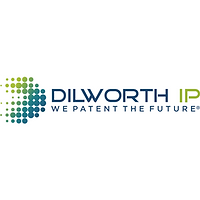
Vision
Raise awareness of climate-related challenges across the IP community
Lower the IP supply chain’s GHG emissions
Facilitate transition to technologies with lowered GHG emissions
Mission
Establish a member-based community united by the commitment to
The IP4ET Charter
Create best IP practices and accelerate their adoption for the decarbonisation of the IP supply chain
Create/propose mechanisms for the IP supply chain to accelerate transition to technologies with lowered GHG emissions
Address open and pressing questions, such as:
How to calculate the GHG emissions from IP practices for corporate reporting?
How to estimate the GHG emissions/emission reductions associated with inventions/patents?
Which business/partnership/incentivization models to propose for enabling the energy transition?
How to balance operational excellence enabled by AI with its related GHG emissions?
How to estimate, reduce, and offset GHG emissions from operating a private practice firm?
Message from the Founders
"The IP Charter for Energy Transition (IP4ET) is founded on the belief that every ecosystem has the potential to drive positive change, and that true impact is achieved through collective effort. By harnessing the strength of its community, the IP4ET seeks to raise awareness, address pressing questions, and accelerate the adoption of practices and technologies that lower GHG emissions."
"The IP Charter for Energy Transition (IP4ET) equips public and private sector stakeholders with the knowledge and tools needed to navigate complex SDG-related regulations and unlock opportunities for meaningful integration with IP in an increasingly carbon-constrained economy."

The IP4ET Charter
All the specific actions for each of the principles below are accessible to Members only.
IP Protection (SDGs 9, 13)
Example: Balancing filings volumes by prioritizing patents linked to lowered GHG emissions
IP Management (SDG 13)
IP Enforcement (SDG 13)
Example: Prioritize third-party infringements with the greatest GHG emissions potential and mitigate them using actions weighted based on their own carbon footprint
IP Exploitation (SDGs 9, 13)
Example: Leverage pledges, patent pools, and licensing to enable the energy transition and support countries most affected by climate changes
Digitalisation (SDGs 12, 13)
IP Procurement (SDGs 5, 8, 12, 13)
Example: Integrate requests for GHG emissions inventory from vendors during tendering processes
Company Policies Alignment (SDG 13)
- Commuting & Business Travel -
IP Awareness & Education (SDG 4)
Membership & Governance
The IP4ET welcomes participation from all actors across the IP value chain — including IP owners, Patent and Trademark Offices, IP/law firms, IP technology and service providers, research centres, and IP associations.
Membership is free and granted upon signing the Membership Form. Members attend bi-annual meetings and actively contribute to the development of the Charter and the creation of resources.
The IP4ET is supervised by an Advisory Board, which supports shaping the initiative and organizing activities relevant to its Members.




























